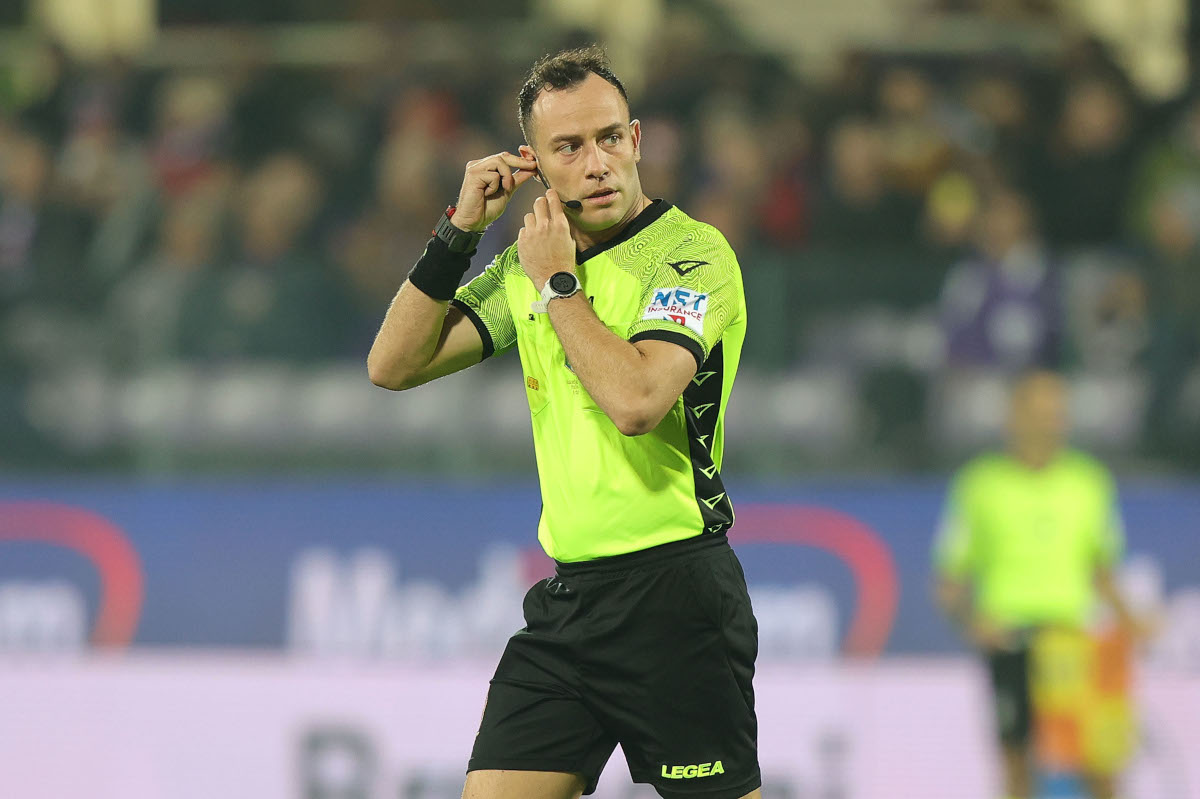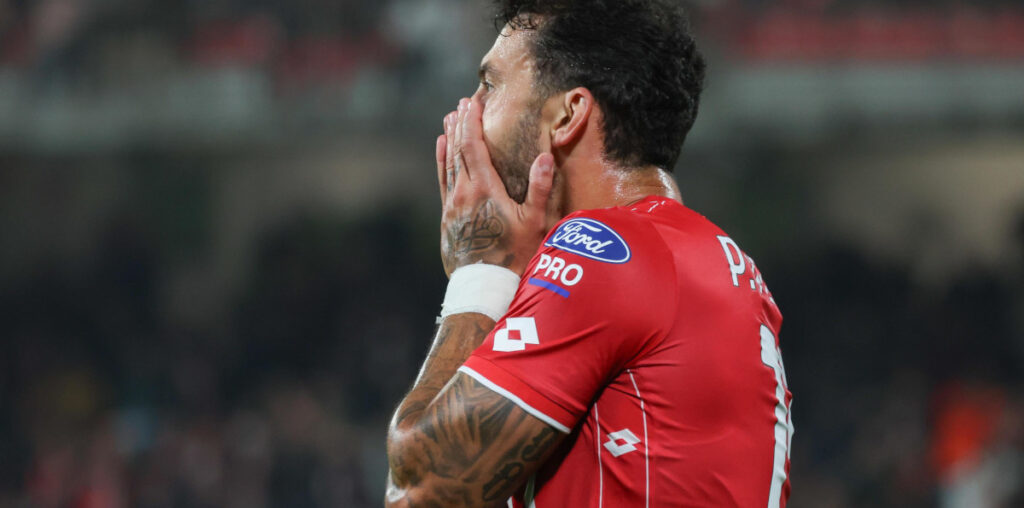
epa11698022 AC Monza’s defender Pedro Pereira looks dejected during the Italian Serie A soccer match between AC Monza and AC Milan at U-Power Stadium in Monza, Italy, 02 November 2024. EPA-EFE/ROBERTO BREGANI
An official representative of the Referees’ Association confirms there were ‘two errors’ in the decision to disallow Monza’s goal in a 1-0 defeat to Milan.
The incident caused a great deal of controversy on Saturday evening, as Ermanno Feliciani blew the whistle for Warren Bondo’s tussle with Theo Hernandez only quite a few seconds after their coming together, once Dany Mota Carvalho had scored the goal.
It infuriated Monza coach Alessandro Nesta, who understandably felt they had been damaged by the decision in what went on to be a 1-0 defeat.

On Sunday night, retired referee and current member of the Referees’ Association Elenito Di Liberatore was a guest on DAZN show Open VAR to explain what had happened at the U-Power Stadium.
“There are two errors here that were committed by the referee. The first is that the contact was too light to be sanctioned with a foul and the second was the timing,” said Di Liberatore.
“If the referee had blown for the foul at that moment, it would’ve been called a weak free kick, but that is all. Because he let the move continue and then gave the free kick, we created this situation. It would’ve been opportune to give the foul at the start of the move.”
Highlights: Monza 0-1 Milan
The audio from the VAR evaluation was also aired on the programme, where they said that Bondo had pulled Theo Hernandez’s shirt and therefore they would not over-rule the decision made on the pitch by the referee.
“The contact was light, so obviously VAR cannot really intervene because there is still contact, and it cannot be considered a clear and obvious error. The referee has to be given discretion over these things on the field.
“The mistakes were made when giving the foul in the first place and above all the timing of the whistle.”
Generally speaking, referees are encouraged to wait until the move has completed before blowing the whistle if a situation is doubtful or at the limit, so that VAR can then intervene.
Had the referee let the move play out and not blown the whistle, VAR would not have intervened to have the Monza goal disallowed over that small shirt tug from two players who were not involved in the build-up.

